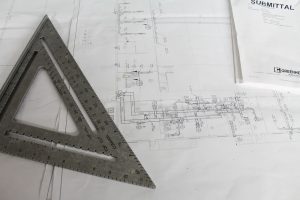
Project type is an essential piece of information when it comes to securing payment for the work your company does on construction jobs. There are 5 types of projects: residential, owner-occupied residential, commercial, state/county, and federal. When it comes to lien rights, project type has a big impact on which documents are required and when they need to be sent.
Identifying your project type sounds simple, but it can be really tough on some of the biggest and most common construction projects like stadiums, hospitals, and schools. School construction can be classified as commercial or state/county depending on the project, and charter schools are extra challenging.
Having trouble with project type on other jobs?
- Find project type for hospitals
- Find project type for airports
- Find project type for mixed use developments
- Find project type fir P3 projects
- Find project type for stadiums
What type of project is this school?
Let’s play a game! The following scenarios illustrate how schools can fall into different project types.
I am located in Los Angeles county and situated on land owned by the Los Angeles Unified School District. You are responsible for installing solar panels for me, and you easily found a Request for Bid notice online for this project.
What type of project am I?
I am a public school, and public schools are typically owned by the city or a school district, so you should send any lien rights management documents according to state/county project guidelines. Public schools almost always publish construction project information in the public record.
I am a college prep academy located in central California on land owned by a company called Aspire Public Schools. I am chartered by the area school district and receive funding from the state in accordance with California law.
What type of project am I?
Even though I am a charter school, I am owned by a publicly-funded company, so I would be classified as a state/county project. Even though I may operate differently from a traditional public school, “Aspire Public Schools” is likely public entity or public benefit corporation since it is chartered by the area school district and receives funding from the state.
I am a science and technology magnet school located near Houston, TX on land owned by a private LLC. I have no cost of attendance nor an admissions process, but I am funded by private donors.
What type of project am I?
I am a charter school, but likely a commercial project. Just because I am free to attend, and may even be called a public charter school does not mean I am public project. I am commercial because I am on privately held land and privately funded. Charter schools on private property do not necessarily have to follow the same state bidding or project regulations as public schools.
I am a small K-12 academy in the suburbs of Denver, CO. I stand on several acres owned by my own board of directors, and you can see I have a fairly rigorous admissions process and high cost of attendance.
What type of project am I?
Because I am privately owned and funded through tuition money and private donations, I am a private school. You rented equipment to a GC building me a new gymnasium, and this was a commercial job. Other private schools may be owned by religious organizations or private non-profits, and they do not have to publish project information in the public record.
It can be hard to determine the type of project you worked on, but examining factors like ownership, project funding, and your own customer can help you correctly classify the job. Even then, it can still be complex, which is why Levelset employs a team of researchers to dig up hard-to-find project information so you can be presented with the information to make the best evaluation of your project’s type. If you’d like to learn more about how Levelset can help find information about your projects and help you manage your lien rights, please get in touch. We’d love to chat!
Learn more: How Much Does it Cost To Build a School?
